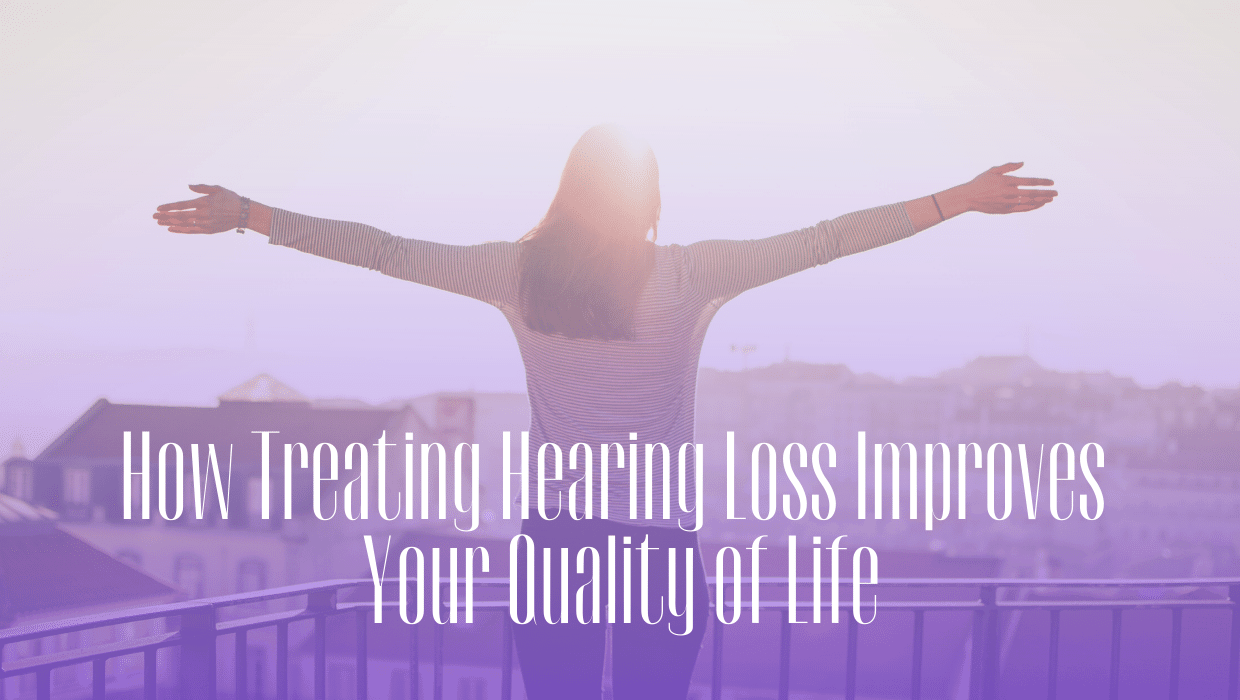Hearing loss sits at number three in the most common medical conditions in the United States after cardiovascular disease and arthritis, findings by the American Academy of Audiology show. The Hearing Health Foundation reports that the number of Americans living with hearing loss is higher than those living with the combined number of people with Parkinson’s, Epilepsy, Alzheimer’s, and Diabetes. However, despite this high occurrence, researchers estimate that only 20 percent of those in need of hearing aids end up wearing them.
Long-term unresolved hearing loss can have significant physical, behavioral, and emotional impacts. But there’s considerable evidence that taking measures to improve our hearing is going to go a long way to making sure we age well. But it’s crucial to understand that we don’t treat loss of hearing to hear more clearly. Treating hearing loss increases our quality of life, and increasing our chances of aging successfully. It can be a lengthy, often daunting process to overcome hearing loss, but the advantages of improved hearing are well worth the effort.
To those of you still undecided, here are some advantages of using hearing aids to correct hearing loss.
Better communication
Hearing loss affects how we hear speech and, thus, how we interact with others. It becomes tough to follow what people are saying when you have hearing loss and to distinguish between similar sounds. Therefore, hearing loss makes group discussions very difficult, especially in busy, noisy places. Focusing on the voices of speakers in a group conversation is challenging for people with hearing loss, and it is also difficult to distinguish speech sounds from ambient sounds in a given setting. As a result, people with chronic hearing loss continue to disconnect from social settings slowly and may become disconnected from their most important relationships.
The good news is that hearing aids have excellent speech recognition features to help you manage your hearing loss, which helps, whether you are engaged in meaningful conversations or merely a casual chat with a friend. Treating hearing loss is just as much a responsibility to your loved ones as it is to your health and happiness.
Improved mental health
Untreated hearing loss can worsen mental health problems by making contact more difficult and promoting social isolation. It can be frustrating when we have issues feeling heard by others, and trouble understanding what they are saying to us. In this way, unaddressed hearing problems make us prone to anxiety and depression. But with treatment, we can help keep these emotional issues at bay.
Cognitive benefits
Dementia, the sixth major cause of death in the United States, is a brain disease that presents itself through a series of health problems associated with cognitive decline. You may not believe it, but the connection between dementia and hearing loss is growing in strength. While we cannot tell one lead directly to another, recent studies have pointed to a relationship. And treatment of hearing loss can have dramatic results – Last year, a report by a British university found that using hearing aids reduced the risk of adult dementia by 75 percent.
Higher earning power
Hearing aids in the workplace are extraordinarily useful, improving productivity into situations that were once difficult to navigate as a person with hearing loss. Reports indicate that the use of hearing aids and assistive technology could boost earnings as much as $30,000. Hearing aids can also reduce the risk of losing personal earnings for 90% of those with mild hearing loss and 77% of those with moderate to severe hearing loss.
Improved independence
People with hearing loss report regaining their freedom through the use of hearing aids. This improved independence is perfect for both parties, especially for the person who has to deal with a partner with hearing loss because they no longer have to repeat things and talk louder or more just for their partner’s benefit.
The person with a newly restored hearing will enjoy the new freedom that this hearing offers. Even something as easy as answering the phone is smooth again, eliminating the individual’s self-doubt and rebuilding self-confidence seen only before their hearing loss.
Reduced tinnitus symptoms
In America, more than 50 million people suffer from tinnitus, a high-pitched ringing or clicking noise that our brain creates to cope with the frequencies lost when experiencing hearing loss. With advances in hearing aid technology, a growing number of hearing aid manufacturers are now developing hearing aids designed explicitly with tinnitus alleviation programs. These advances mean that using hearing aids to improve hearing loss has an additional advantage in mitigating the symptoms of tinnitus.

